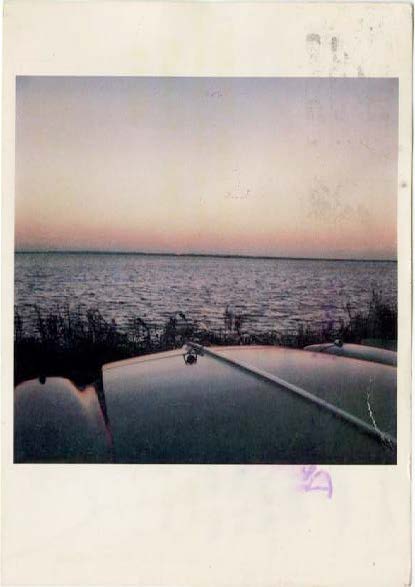
All images © the Estate of David Wojnarowicz. Courtesy of Primary Information, the Estate of David Wojnarowicz, and P·P·O·W, New York. |
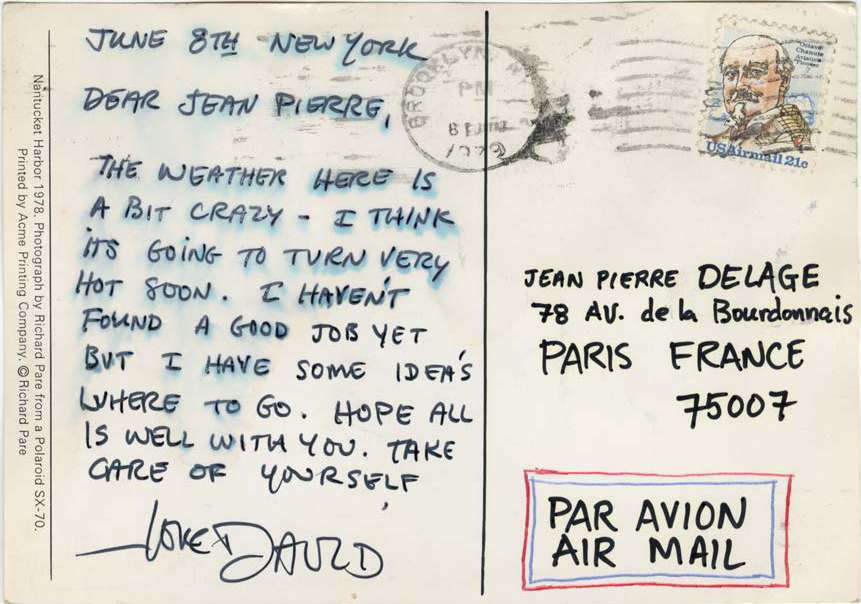 |
The following letters were sent by David Wojnarowicz to his Parisian lover Jean Pierre Delage in 1979, as part of a three-year transatlantic correspondence that ended in 1982. In them, the artist details his day-to-day life with the type of unbridled earnestness that comes with that age, providing a picture of a young man just beginning to find his voice in the world and of the love he has found in it. Although the two exchanged letters in equal measure, Delage’s have largely been lost, leaving us only with a glimpse into the internal world of Wojnarowicz during what turned out to be his formative years.
Capturing a foundational moment for Wojnarowicz’s artistic and literary practice, the letters not only reveal his captivating personality but also index the development of the visual language that would go on to define him as one of the preeminent artists of his generation. Included with his writings are postcards, drawings, Xeroxes, photographs, collages, flyers, and other ephemera that showcase some of Wojnarowicz’s iconic images and work, as well as document the New York that formed the backdrop to his practice.
—James Hoff, editor
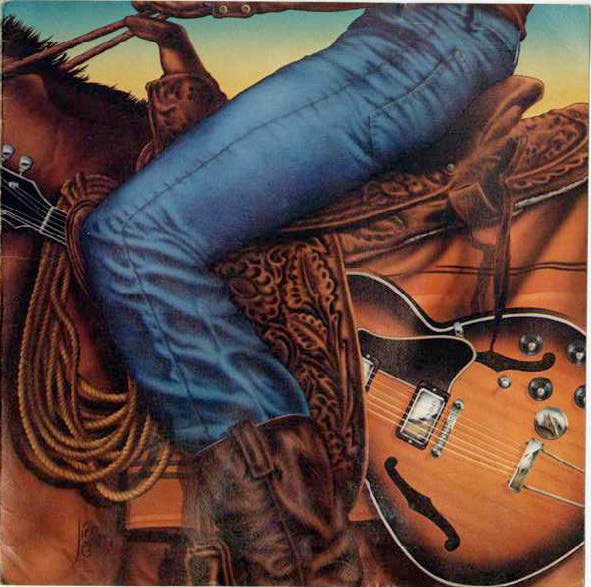 |
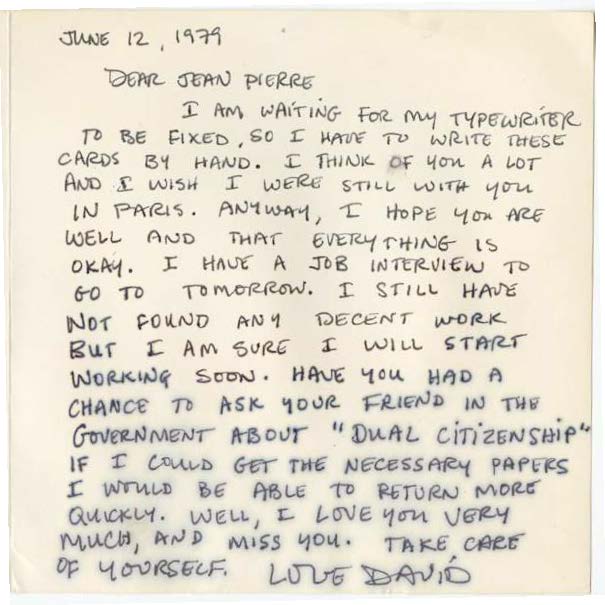 |
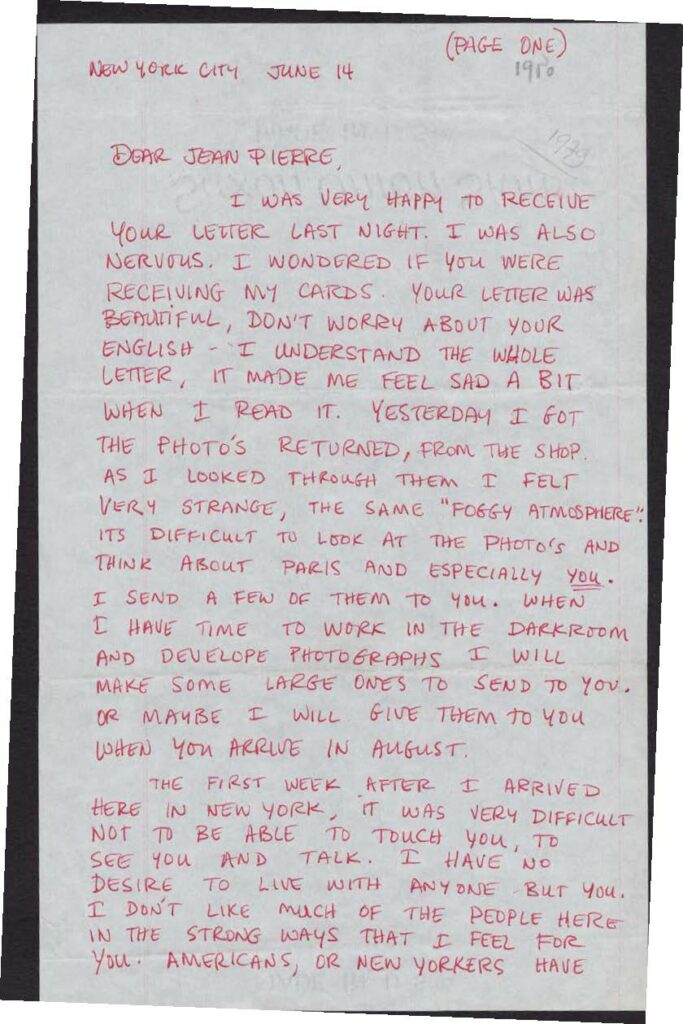
New York City
June 14, 1979
Dear Jean Pierre,
I was very happy to receive your letter last night. I was also nervous. I wondered if you were receiving my cards. Your letter was beautiful, don’t worry about your English—I understand the whole letter, it made me feel sad a bit when I read it. Yesterday I got the photos returned from the shop. As I looked through them, I felt very strange, the same “foggy atmosphere.” It’s difficult to look at the photos and think about Paris and especially you. I sent a few of them to you. When I have time to work in the darkroom and develop photographs, I will make some large ones to send to you. Or maybe I will give them to you when you arrive in August.
The first week after I arrived here in New York, it was very difficult not to be able to touch you, to see you and talk. I have no desire to live with anyone but you. I don’t like much of the people here in the strong ways that I feel for you. Americans, or New Yorkers, have more freedom in a certain sense, but they seem to be afraid to explore their feelings. Every one of my friends has been good with me, they try to make me feel comfortable with living in New York. But I feel very strange and I miss you. I am glad you are coming to New York in August. Do not be afraid of New York. When I returned after nine months in France, New York shocked me. But now I see it differently. There is much energy. Many things happen on the streets. Everyone rushing around and much much noise and talk. It can be very exciting, and sometimes it can be very strange. But do not worry, when you arrive I will show you many things and also help you to find your way around the city. I have hope that you will be excited by the experience. It is very different from Europe, but it can be very interesting as an experience.
I think I will be working very soon. I am waiting for a job working with a photographer—they should call me today and let me know. I feel confident about having an apartment (flat) by August. I will share a flat with Brian. (Brian says: “Hello,” he hopes you are well.)
I will go to the embassy soon. I have been busy looking for work. I think you are correct. Maybe I should try to live as a student in Paris. We have some time to work on this before the end of August. I wait and wish I could see you tomorrow. Again, I hope you are well, I love you and hope everything is going well. Take good care of yourself. Have a good night. I hope June and July pass quickly. I’ll be very happy to see you. Be well.
—love David
 |
 |
 |
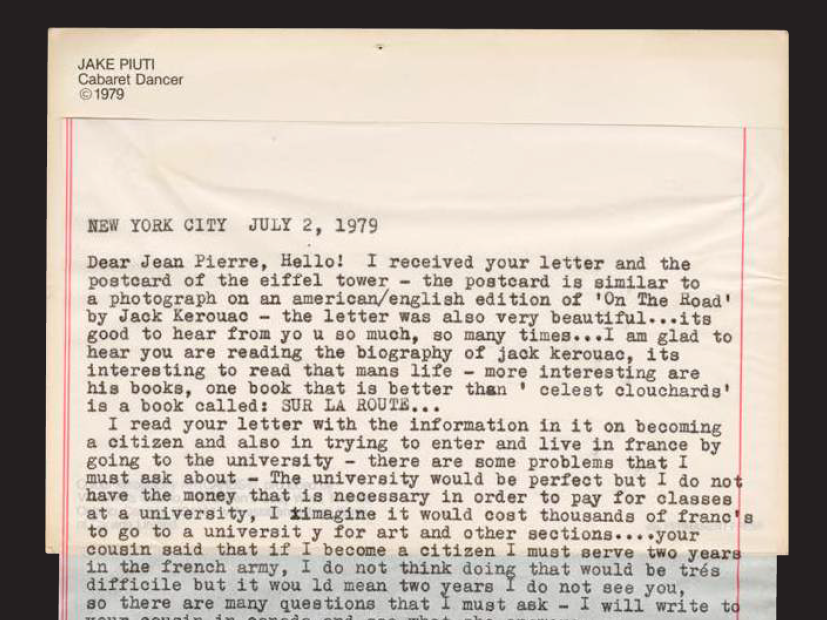 |
New York City
July 2, 1979
Dear Jean Pierre, Hello! I received your letter and the postcard of the Eiffel Tower—the postcard is similar to a photograph on an American/English edition of On The Road by Jack Kerouac— the letter was also very beautiful … it’s good to hear from you so much, so many times … I am glad to hear you are reading the biography of Jack Kerouac, it’s interesting to read that man’s life—more interesting are his books, one book that is better than Celest Clouchards [sic] is a book called: SUR LA ROUTE …
[…] Tonight after work I walked along the river again, I watched the sun fall through the skies over the cliffs of New Jersey in a huge red ball, the color of roses in Normandy in the autumn, the skies were filled with large clouds like strange airplanes drifting against the sides of tall buildings, I walked out onto a long pier where large ships years ago would dock and unload cargo in the day and the night … the water was a dark blue and rolling under the wind that blew in from the west, it was a beautiful sunset and I felt very strange in a good way, I thought of this past year and of you, I also think to when you arrive and I will have a chance to bring you around the city and show you all these things, the river, the village and the music clubs where many new wave bands play, musicians like DEVO and TALKING HEADS and BLONDIE—it will be very exciting and also very powerful, I don’t think you will have experiences like this anywhere else except maybe England … so much energy and good music and wild living goes on here, so don’t worry about being afraid of New York, it is quite safe to walk around and I think after a few days you will feel comfortable enough here, well, we will see, also this woman I know said to me that you and I can come up to her house near Woodstock, New York, and stay for a weekend, it is so pretty up there with long long rolling hills, forests and streams and rivers and good air … oh Jean Pierre, I think to you and can not wait long to hold you and talk with you and look you in the eyes and make love and be with you sleeping and after work, you must know what I mean …
take care of yourself, be good and I love you
—love David
 |
 |
 |
 |
 |
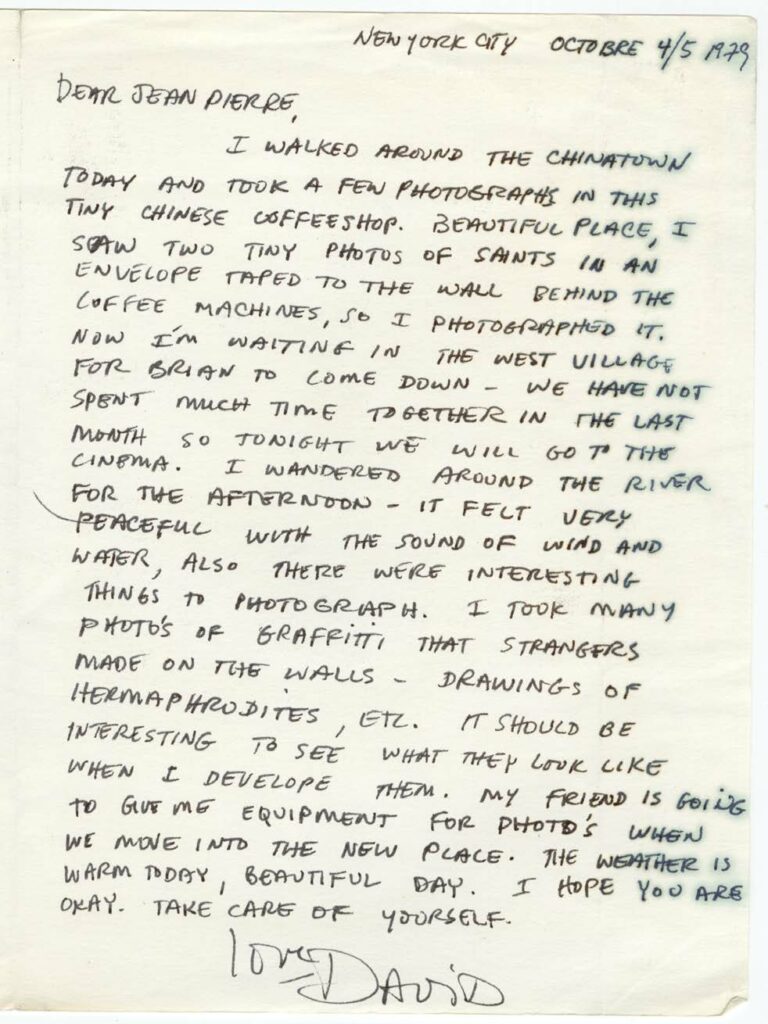 > |
New York City
October 4/5, 1979
Dear Jean Pierre,
I walked around the Chinatown today and took a few photographs in this tiny Chinese coffee shop. Beautiful place, I saw two tiny photos of saints in an envelope taped to the wall behind the coffee machines, so I photographed it. Now I’m waiting in the West Village for Brian to come down—we have not spent much time together in the last month so tonight we will go to the cinema. I wandered around the river for the afternoon—it felt very peaceful with the sound of wind and water, also there were interesting things to photograph. I took many photos of graffiti that strangers made on the walls—drawings of hermaphrodites, etc. It should be interesting to see what they look like when I develop them. My friend is going to give me equipment for photos when we move into the new place. The weather is warm today, beautiful day. I hope you are okay. Take care of yourself.
—love David
From Dear Jean Pierre, out from Primary Information this August.
David Wojnarowicz (1954–1992) was born in Red Bank, New Jersey. Wojnarowicz channeled a vast accumulation of raw images, sounds, memories, and lived experiences into a powerful voice that was an undeniable presence in the New York City art scene of the seventies, eighties, and early nineties. His use of blunt semiotics and graphic illustrations exposed what he felt the mainstream repressed: poverty, abuse of power, blind nationalism, greed, homophobia, and the devastation of the AIDS epidemic. Wojnarowicz died of AIDS-related complications at the age of thirty-seven.
You can read Hannah Gold’s essay on Wojnarowicz’s letters to Jean Pierre on the Daily here.
from The Paris Review https://ift.tt/BcuSHoW
Comments
Post a Comment